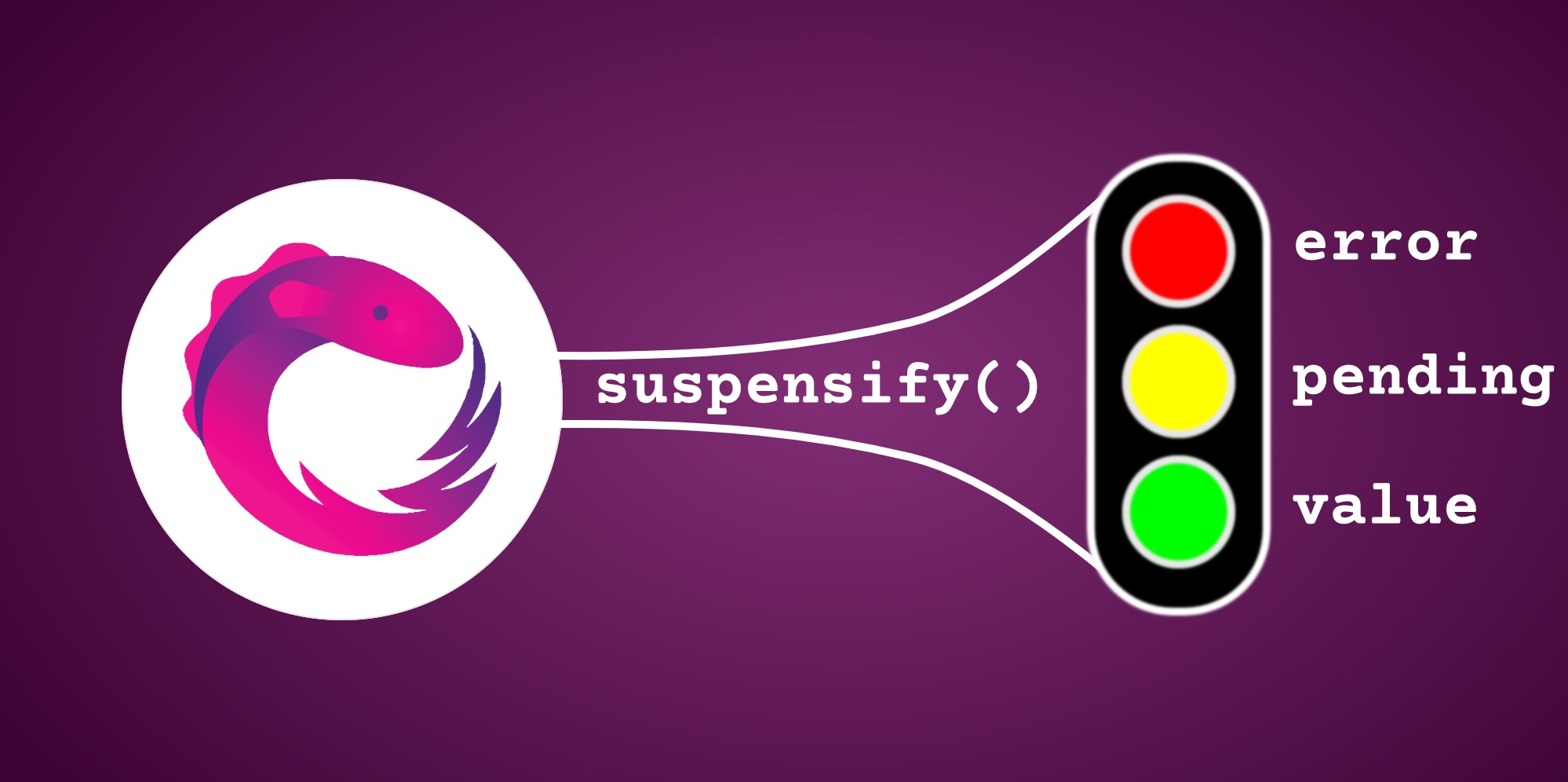
Managing RxJS Traffic with Signals and Suspensify
by Younes Jaaidi • Apr 28, 2023 • 9 minutes

@Component({
…
template: `<mc-recipe [recipe]=”recipe()”/>`
})
class MyCmp {
recipe = toSignal(this.getRecipe());
getRecipe() {
return of('🍔').pipe(delay(1000));
}
}error TS2322: Type 'string | undefined' is not assignable to type 'string'recipe = toSignal(this.getRecipe(), {initialValue: '🍕'});recipe = toSignal(this.getRecipe());<mc-spinner *ngIf="!recipe()"/>
<mc-recipe *ngIf="recipe() as recipeValue" [recipe]="recipeValue" />@Component({
…
template: `
<div *ngIf="error()">Oups! Something went wrong.</div>
<mc-recipe *ngIf="recipe() as recipeValue" [recipe]="recipeValue" />
`,
})
export class AppComponent {
error = signal(null);
recipe = toSignal(
this.getRecipe().pipe(
catchError((error) => {
this.error.set(error);
return of(null);
})
)
);
…
}@Component({
…
template: `
<mc-progress-bar *ngIf="!finalized()"/>
<app-recipe *ngIf="recipe() as recipeValue" [recipe]="recipeValue" />
`,
})
export class AppComponent {
finalized = signal(false);
recipe = toSignal(
this.getRecipe().pipe(
finalize(() => this.finalized.set(true))
)
);
…
}this.getRecipe()
.pipe(suspensify())
.subscribe(value => console.log(value));{pending: true, finalized: false, hasError: false, hasValue: false}
{pending: false, finalized: false, hasError: false, hasValue: true, value: '🍔'}
{pending: false, finalized: true, hasError: true, hasValue: false, error: '💥'}recipe = toSignal(this.getRecipe().pipe(suspensify())); // Signal<Suspense<Recipe> | undefined><!-- error TS2532: Object is possibly 'undefined' -->
<mc-progress-bar *ngIf=”!recipe().finalized”/>recipe = toSignal(this.getRecipe().pipe(suspensify()), {requireSync: true}); // Signal<Suspense<Recipe>><div *ngIf="suspense.hasError">
{{ suspense.error }} // ✅
{{ suspense.value }} // 💥 template compilation error
</div>
<div *ngIf="suspense.hasValue">
{{ suspense.error }} // 💥 template compilation error
{{ suspense.value }} // ✅
</div><div *ngIf="recipe().hasError">
{{ recipe().error }} // 💥 template compilation error
{{ recipe().value }} // 💥 template compilation error
</div>
<div *ngIf="recipe().hasValue">
{{ recipe().error }} // 💥 template compilation error
{{ recipe().value }} // 💥 template compilation error
</div>recipe = toSignal(this.getRecipe().pipe(suspensify({strict: false})));<div *ngIf="recipe().hasError">
{{ recipe().error }} // ✅
{{ recipe().value }} // ✅
</div>
<div *ngIf="recipe().hasValue">
{{ recipe().error }} // ✅
{{ recipe().value }} // ✅
</div><ng-container *ngIf=”recipe() as suspense”>
<div *ngIf="suspense.hasError">
{{ suspense.error }} // ✅
{{ suspense.value }} // 💥
</div>
<div *ngIf="suspense.hasValue">
{{ suspense.error }} // 💥
{{ suspense.value }} // ✅
</div>
</ng-container>@Component({
…
template: `
<mc-progress-bar *ngIf=”!recipe().finalized”/>
<div *ngIf="recipe().hasError">
{{ recipe().error }}
</div>
<div *ngIf="recipe().hasValue">
{{ recipe().value }}
</div>
`
})
class MyCmp {
recipe = toSuspenseSignal(this.getRecipe());
getRecipe(): Observable<Recipe> {
…
}
}
function toSuspenseSignal<T>(source$: Observable<T>) {
return toSignal(source$.pipe(suspensify({ strict: false })), {
requireSync: true,
});
}